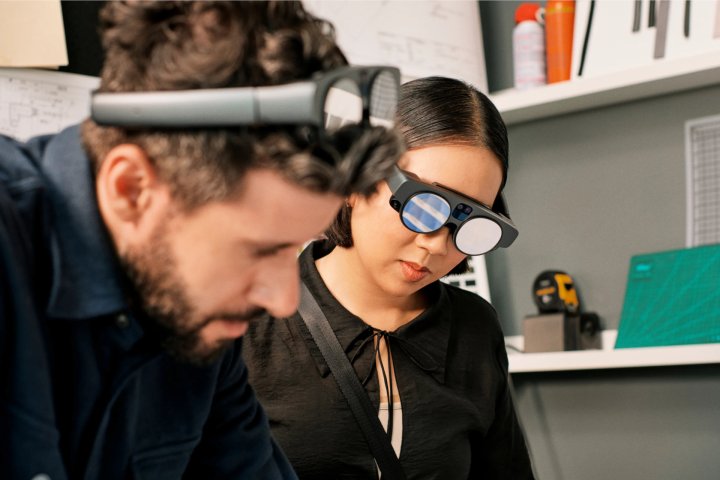
Google has been researching AR glasses for many years, but we’ve yet to see a consumer product launch. The backlash against the short-lived Google Glass Explorer Edition seems to have made the search giant overly cautious when it comes to consumer smart glasses.
The latest news, however, suggests Google could be readying another augmented reality (AR) wearable. Today, Magic Leap announced a “multifaceted, strategic technology partnership” with Google. Magic Leap makes one of the most advanced AR glasses available, making this a particularly noteworthy announcement.
Combining Magic Leap’s advanced technology with Google’s Gemini AI, Project Astra, Android XR, and robust Play Store app and content ecosystem could lead to incredibly powerful and versatile AR glasses.

Shahram Izadi, Google’s head of AR/XR (extended reality), said: “We look forward to bringing together Magic Leap’s leadership in optics and manufacturing with our technologies to bring a wider range of immersive experiences to market. By combining efforts, we can foster the future of the XR ecosystem with unique and innovative product offerings.”
There was no mention of when Google’s next AR glasses will launch, but the market is heating up, with several companies offering advanced smart glasses with some AR capabilities.
It’s been 11 years since Google began selling Google Glass. Hopefully, we’ll see an improved version in the next year or two that takes advantage of Google’s rich ecosystem and wide-reaching capabilities.
Google’s AR History
Owners of the 2013 Google Glass prototype suffered from public outrage. The term “Glassholes” became associated with owners of this wearable due to its potential to secretly record people. Never mind that every mobile phone that was out of a pocket had the same capability to record video.
Google sold two generations of Google Glass Enterprise Edition for corporations that saw the value of this technology before discontinuing the product in 2023.
The company has been researching and acquiring related technology ever since, including buying the maker of the intriguing North Focals smart glasses in 2020.
At the end of Google IO 2022, the company demonstrated smart glasses with displays that provided real-time translation and transcription. At Google IO 2024, the impressive Project Astra segment briefly showed AI image recognition and chat via smart glasses.
Like Google Glass, Magic Leap failed as a consumer product, but achieved greater success as an enterprise solution. The current generation, the $3,300 Magic Leap 2, offers industry-leading brightness and field of view in a fairly lightweight 260-gram design.
It’s great news that AR pioneers Google and Magic Leap are now working together on the AR and XR products of the future. Perhaps we’ll even get AR glasses with spatial computing capabilities in the near future.



